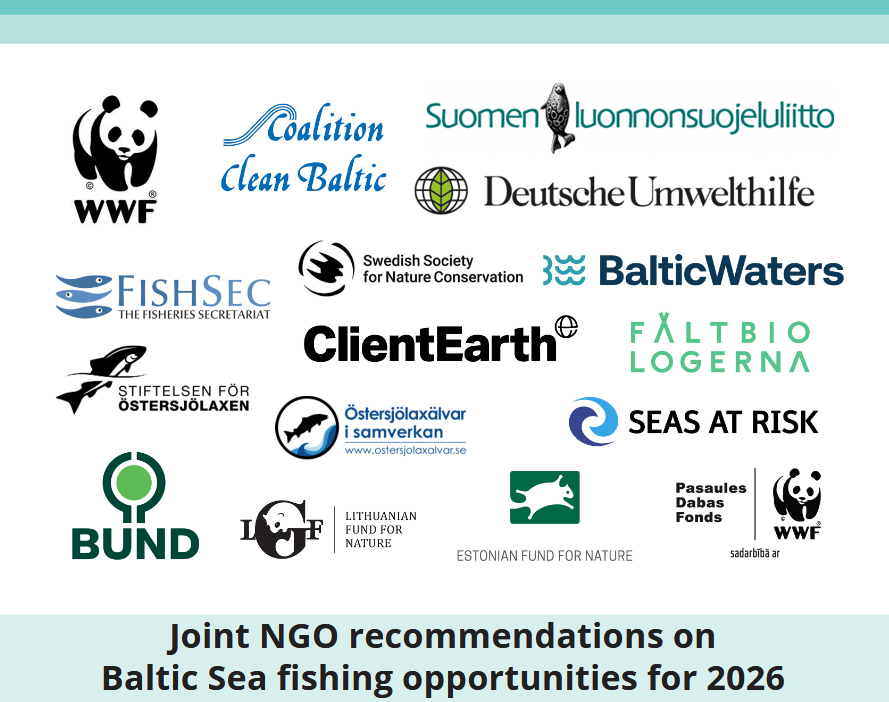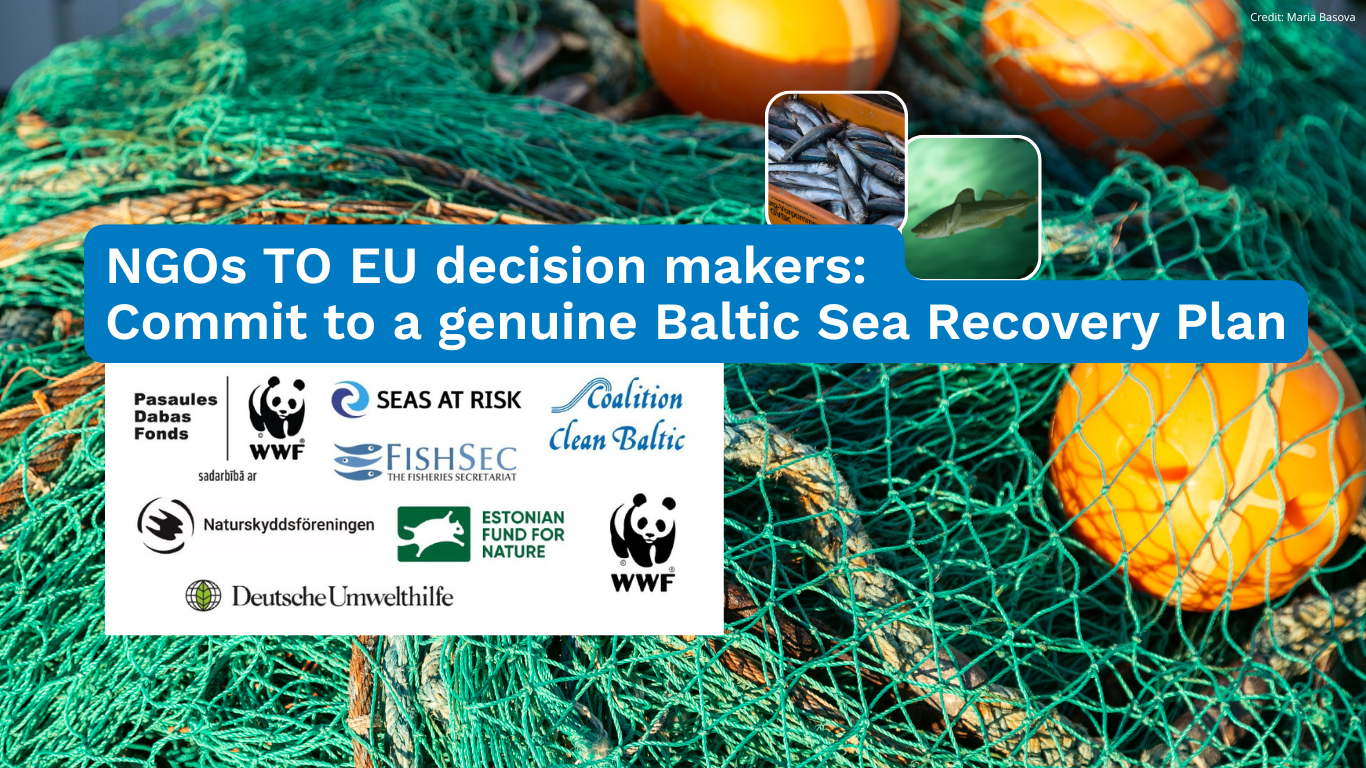NGOs urge Baltic countries to speed up commitments to the Baltic Sea Action Plan
Helsinki, 3 March 2020 – This week at the HELCOM Stakeholder Conference and High-level Meeting [1], Coalition Clean Balic and the WWF Baltic Ecoregion Programme presented a joint ‘ Shadow Plan ’ [2] in response to the ongoing Baltic Sea Action Plan (BSAP) update process [3]. The Shadow Plan contains recommended actions across all themes addressed by the current Action Plan.
The current plan was adopted in 2007 by all countries surrounding the Baltic Sea. Despite ambitious goals and promises to protect and restore the Baltic marine environment by 2021, countries are still a long way off in achieving the targets that were set. According to the most recent HELCOM implementation assessment from 2018 [4], of the 177 actions and recommendations assessed, only 24% of the national actions were completed and 60% partly accomplished whereas 68% of the joint actions have been claimed as completed.
“Changing the environmental state of the Baltic Sea will require that HELCOM ministers ensure the updated plan demands rigorous action from contracting parties, and an overall greater commitment by the Baltic Sea countries to achieving this goal. Tangible efforts must be taken at both national and regional levels, to deliver results that halt the dwindling biodiversity of the Baltic Sea,”
says Ottilia Thoreson, Programme Director at WWF Baltic Ecoregion Programme.
The Shadow Plan relays NGOs recommended actions for HELCOM ministers that are fundamental to restore the sea back to good environmental health, support thriving coastal communities, and increase resilience to climate change. As the 2021 deadline passes, countries need to continue to address the present challenges in the Baltic, as part of their efforts to fulfil global legal framework requirements under United Nations global Sustainable Development Goals and the revised UN Convention of Biological Diversity (CBD) that still remain.
“CCB made it clear in our 2018 Civil Society Declaration on Ecosystem Health of the Baltic Sea [5] that Baltic Region’s residents are getting frustrated and disappointed by countries inaction. Civil society is competent enough to be treated as an equal partner, to be heard and consulted appropriately and to be able to deliver policy inputs. With the Shadow Plan we are set to say NO to tolerating any kind of anthropogenic impacts on the Baltic ecosystem, calling the Governments to be serious in their commitments,”
says Mikhail Durkin, CCB’s Executive Secretary.
The coming decade will be decisive for the state of biodiversity. Action must be taken now and so, we ask that HELCOM ministers take into account our recommendations during the Baltic Sea Action Plan updating process. We call on all Baltic countries to step up and speed up their implementation of nature protection policies.
NOTE TO EDITORS:
CCB – Coalition Clean Baltic is a politically independent, non-profit association, which unites 22 member organizations and 2 observers, with over 850,000 members in all countries around the Baltic Sea. The main goal of CCB is to promote the protection and improvement of the Baltic Sea environment and its natural resources. More info at www.ccb.se
WWF Baltic Ecoregion Programme – is an ambitious and highly influential force working to conserve and restore the health of the Balitc Sea. The programme is comprised of WWF and NGO partners in each of the nine coastal Baltic Sea countries. Representing the region’s largest membership network, the programme’s approach has been to work with public and private sector partners toward ensuring a healthy, productive Baltic Sea through sustainable, ecosystem-based management. More info at: panda.org/baltic
UN Sustainable Development Goals – The Sustainable Development Goals (SDGs), also known as the Global Goals, were adopted by all United Nations Member States in 2015 as a universal call to action to end poverty, protect the planet and ensure that all people enjoy peace and prosperity by 2030. The 17 SDGs are integrated —that is, they recognize that action in one area will affect outcomes in others, and that development must balance social, economic and environmental sustainability. More info at: https://www.undp.org/content/undp/en/home/sustainable-development-goals.html
UN Convention on Biological Diversity – The Convention on Biological Diversity (CBD) entered into force on 29 December 1993. It is known informally as the Biodiversity Convention, is a multilateral treaty and has 3 main objectives, the conservation of biological diversity, the sustainable use of the components of biological diversity and the fair and equitable sharing of the benefits arising out of the utilization of genetic resources. More info at: https://www.cbd.int/
[1] 2020 HELCOM Stakeholder Conference
[2] The Baltic Shadow Plan: for the future of the Baltic Sea
[3] The updated process - “Implementation of the Baltic Sea Action Plan 2018: Three years left to reach good environmental status
[4] HELCOM implementation assessment from 2018
Contact:
Mikhail Durkin
Executive Secretary, Coalition Clean Baltic (CCB)
mikhail.durkin@ccb.se
+46 739 770 793
Ottilia Thoreson
Programme Director, WWF Baltic Ecoregion Programme
ottilia.thoreson@wwf.se
+46 732 745 867



